By Dr. Will Cole
If there’s one thing that could unite people from all over the world, that would be coffee. This beloved beverage is embraced by cultures around the globe and is consumed on a daily basis by up to 65% of Americans and 40% of the world’s entire population. Not only does high quality mold free coffee taste delicious and offer us a much-needed energy boost to get through the day, but it also possesses a variety of health benefits that can support our vitality and longevity.
However, not all coffee is created equal. As a functional medicine practitioner, I have spent the last 10+ years consulting patients all around the world via my telehealth functional medicine clinic on how to overcome their symptoms naturally by identifying and addressing the root cause of their health problems. From autoimmune conditions to gut dysfunctions to hormone imbalances, I have seen firsthand the profound impact food has to either fuel health or feed disease - coffee included. So grab your favorite mug, and let’s take a deep dive into the wonderful world of coffee and its relationship to your health through the lens of functional medicine.
Why the type of coffee you drink matters
While coffee itself possesses a host of potential health benefits, the quality and sourcing of your brew can greatly impact its overall impact on your well-being. Especially if it is something you drink on a daily basis. Opting for high-quality, organic options such as an organic coffee gift box ensures that you are not consuming harmful pesticides, herbicides, or other toxins that may be present in most conventional coffee beans.
In fact, coffee is one of the most likely foods to contain mycotoxins from mold since the roasting process isn’t enough to destroy them. That’s why it is crucial to look for organic coffee brands like Purity Coffee that are also labeled mold-free as mycotoxins have been linked to chronic inflammation and autoimmune conditions. Choosing options such as coffee with cga further enhances these benefits, since chlorogenic acids are among the most valuable compounds in coffee for overall wellness. Blends like organic flow coffee combine purity with optimal antioxidant potential, making them a smart choice for those who want the cleanest and healthiest cup possible.
By selecting organic coffee, you are not only safeguarding yourself against potential chemical exposure but also supporting sustainable agricultural practices. Plus, options like healthy organic decaf coffee tend to just taste better and have richer flavors, so why wouldn’t you want to make the switch?
What are the health benefits of coffee?
With coffee being such a beloved beverage, researchers have long studied coffee’s impact on our health to determine just how much of this delicious drink we can enjoy. And thankfully, they’ve found some amazing reasons to pour ourselves another cup!
1. Coffee can lower inflammation
2. Coffee can increase longevity
If you want to live longer, make sure to drink your daily cup of coffee! Research has found that regular coffee consumption can enhance longevity by protecting against health problems like cardiovascular disease, cancer, and obesity. Choosing high antioxidant coffee can further boost these protective benefits, since antioxidants play a central role in reducing oxidative stress linked to many chronic conditions.
3. Coffee can improve your memory
Drinking coffee has been shown to improve cognitive function and short-term memory, as well as decrease the risk of dementia and Alzheimer’s by up to 65%!
My favorite ways to enjoy coffee
How you drink your coffee can also be just as important to your health as the type of coffee you drink. Next time you make yourself a cup, take these factors into consideration to sip your way to better health!
1. Be mindful of your sweeteners
It’s one thing to choose organic coffee, but if you are loading up your cup with heaps of processed sugar and syrups, it can be equally detrimental for your health. And don’t even get me started on those sugar-free sweeteners! Try swapping out your regular sugar for more gut-friendly options such as raw honey, pure maple syrup, coconut sugar, or stevia.
2. Experiment with homemade creamers
Most of the creamers you buy at the store are filled with sugar and all the unhealthy fake sweeteners you are trying to avoid. Not only does making your own homemade creamers give you control over what sweeteners you are using, it also allows you to choose healthier options for milk whether you use dairy-free oat, almond, or coconut milk or purchase organic, grass-fed dairy.
3. Top your coffee with cinnamon
Things to consider
1. Adrenal fatigue
While many of us turn to coffee to boost our energy, it can put strain on the adrenal glands by further increasing already high cortisol production for those with adrenal fatigue. Limiting coffee intake allows the adrenal glands to rest and recover to facilitate the healing process and support overall adrenal health.
2. Acid reflux
In a healthy individual, the body’s lower esophageal sphincter (LES) is responsible for preventing stomach acid from flowing back into the esophagus. But in the case of acid reflux, the LES doesn’t function properly to prevent the backflow of stomach acid. Coffee can be troublesome for those who struggle with acid reflux because the high levels of caffeine and chlorogenic acid content in coffee can weaken your body’s LES and stimulate the production of stomach acid, further perpetuating acid reflux symptoms.
3. Genetic variants
Known as the “caffeine gene,” CYP1A2 determines how quickly (or slowly) you metabolize caffeine. If you have two slow variants of this gene, you’re a slow metabolizer and at a higher risk for adverse effects from caffeine. For example, studies have found that slow metabolizers have a higher risk of heart attacks, digestive disorders, and cortisol spikes from drinking coffee.
But that doesn’t mean you have to stop drinking coffee altogether, as those risks only increase with more than 2 cups of coffee per day. So how do you know if you’re a slow metabolizer? If coffee makes you feel jittery or anxious, chances are you don’t tolerate coffee as well as your fast metabolizing friends who feel minimal effects from a cup (or two!) of coffee.
If you are particularly sensitive to caffeine, I recommend adding a little coconut oil, ghee, or grass-fed butter to your cup of coffee, as these fats can slow down the absorption of caffeine to provide a more sustained release of energy and minimize any potential crash that might come later.
The Takeaway
In pursuing better health, reconsidering the type of coffee you drink and how you drink it can be a simple way to make a big change in your health for the better. By embracing organic varieties from brands like Purity Coffee that understand the impact these factors have on your health, you can sip with confidence, knowing that your choice aligns with your wellbeing and your tastebuds!
7 comments








Can the 2 cups of coffee be considered part of the water I drink? I imagine not. I am in the process of attempting to loose weight and the amount of water thet say I should drink is 18 cups. That seems like too much.
———
Purity Coffee replied:
Thanks for your comment! Following the guideline of drinking half your body weight in ounces of water can be a good rule to maintain hydration. However, individual needs may vary, so it’s important to adjust based on how your body feels. If you’re finding it difficult to meet this guideline, consider gradually increasing your intake. Consulting with a healthcare professional can provide personalized advice for your hydration and weight loss goals. Best wishes on your health journey!
How long is it good to keep bags of coffee beans? I hate to pay shipping charges but don’t use up bags of beans fast enough to buy a whole lot at one time.
———
Purity Coffee replied:
That’s a great question! Once a bag has been opened, we recommend consumption within a month. If you have a large amount of coffee, such as a 5-pound bag, and need to store it for longer after opening it, we recommend using a vacuum storage container. Even with a vacuum storage container, it is best to portion out the amount you will go through in 1-2 weeks in separate, well-sealed containers. This will ensure you are not exposing the entirety of the coffee to oxygen on a daily basis. If you have any additional questions about coffee storage, you can reach us by email at support@puritycoffee.com
What if you can only drink decaf. Do you not reap any benefits?
———
Purity Coffee replied:
That is a great question! Yes, decaf coffee provides many of the same health benefits. You can read more about that here: https://tinyurl.com/3caed3n8
What a great post! I can relate to those coffee jitters, especially when I haven’t eaten anything first. My trick is enjoying coffee with some soothing add-ins – honey, cinnamon, and walnut milk. For anyone reading, walnut milk is a must-try coffee addition! It perfectly complements and smooths out the coffee flavor.
Though, the issue of mold in generic coffee is alarming. My mother struggles with inflammatory problems from causes unknown. So I will buy her a bag to try and help.
Thank you purity coffee for being an honest, reliable coffee company.
———
Purity Coffee replied:
Thank you for the kind words! Your coffee add-ins sound delightful, especially the walnut milk suggestion. We hope our coffee makes a positive difference for your mother. Your support and trust in our brand mean the world to us!
Hey WIll, thanks for the post! I am a fellow FMer and Purity drinker. The Gesha roast they just came out with was amazing. Probably best coffee I have had. I typically add lion’s mane to my regular purity blends so good. I even mix decaf with flow for a delicious half cafe blend one the days I dont want as much caffeine. Also, love the cinnamon. I will rotate between cinnamon or cardamom. Cardamom makes a delicious twist and helps to calm some of that Pitta fire. For creamer I love to use Aroy-D full fat coconut milk frothed with a dash of vanilla. It makes a nice whipped cream with no sugar and all the good fats. And finally my seasonal blends are a pumpkin latte and a peppermint mocha. I used actual pumpkin in the pumpkin spice latte and the peppermint is amazing for the winter time. If you want recipes hit me up. I would love to share.
Leave a comment